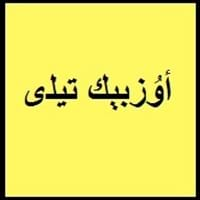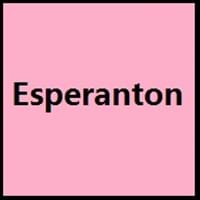Uzbek vs Esperanto
Countries
Turkey, Uzbekistan
East Asia, European Union, South America
National Language
Afganistan, China, Kazakhstan, Kyrgyzstan, Russia, Tajikistan, Turkmenistan, Uzbekistan
East Asia, European Union
Second Language
Not spoken in any of the countries
Central Europe, East Asia, Eastern Europe, South America
Speaking Continents
Middle East
Asia, Europe, South America
Minority Language
Not spoken in any of the countries
Not spoken in any of the countries
Regulated By
Not Available
Akademio de Esperanto
Interesting Facts
- Uzbek is officially written in the Latin script, but many people still use Cyrillic script.
- In Uzbek language, there are many loanwords from Russian, Arabic and Persian.
- The most widely spoken constructed language in the world is Esperanto.
- Esperanto is an artificial international language.
Similar To
Kazakh and Uyghur Languages
Not Available
Derived From
Not Available
Not Available
Alphabets in
Uzbek-Alphabets.jpg#200
Esperanto-Alphabets.jpg#200
Scripts
Arabic, Cyrillic, Latin
Latin
Writing Direction
Not Available
Not Available
How Are You?
Qalay siz?
Kiel vi sanas?
Good Night
Hayirli tun
Bonan nokton
Good Evening
Hayirli kech
Bonan vesperon
Good Afternoon
Hayirli kun
Bonan posttagmezon
Good Morning
Hayirli tong
Bonan matenon
Sorry
Kechiring!
Mi bedaŭras!
I Love You
Sizni sevaman
Mi amas vin
Excuse Me
Iltimos! Menga qarang
Pardonu!
Dialect 1
Tashkent
Not present
Where They Speak
Not Available
Not present
Dialect 2
Afghan
Not present
Where They Speak
Not Available
Not present
Dialect 3
Ferghana
Not present
Where They Speak
Not Available
Not present
Speaking Population
Not Available
Second Language Speakers
Not Available
Native Name
أۇزبېك ﺗﻴﻠی o'zbek tili ўзбек тили (o‘zbek tili)
Esperanto
Alternative Names
Annamese, Ching, Gin, Jing, Kinh, Viet
Eo, La Lingvo Internacia
French Name
ouszbek
espéranto
German Name
Usbekisch
Esperanto
Pronunciation
Not Available
[espeˈranto]
Ethnicity
Uzbek
Not Available
Origin
9th–12th centuries AD
1887
Language Family
Turkic Family
Indo-European Family
Subgroup
Turkic
Not Available
Branch
Southestern(Chagatai)
Not Available
Early Forms
Chagatay
Proto-Esperanto
Standard Forms
Uzbek
Esperanto
Language Position
Not Available
Signed Forms
Not Available
Signuno
Scope
Macrolanguage
Individual
ISO 639 6
Not Available
Not Available
Glottocode
uzbe1247
espe1235
Linguasphere
No data available
51-AAB-da
Language Type
Living
Constructed
Language Linguistic Typology
Not Available
Not Available
Language Morphological Typology
Not Available
Agglutinative
Uzbek and Esperanto Language History
Comparison of Uzbek vs Esperanto language history gives us differences between origin of Uzbek and Esperanto language. History of Uzbek language states that this language originated in 9th–12th centuries AD whereas history of Esperanto language states that this language originated in 1887. Family of the language also forms a part of history of that language. More on language families of these languages can be found out on Uzbek and Esperanto Language History.
Uzbek and Esperanto Greetings
People around the world use different languages to interact with each other. Even if we cannot communicate fluently in any language, it will always be beneficial to know about some of the common greetings or phrases from that language. This is where Uzbek and Esperanto greetings helps you to understand basic phrases in Uzbek and Esperanto language. Uzbek word for "Hello" is Salom or Esperanto word for "Thank You" is Dankon. Find more of such common Uzbek Greetings and Esperanto Greetings. These greetings will help you to be more confident when conversing with natives that speak these languages.
Uzbek vs Esperanto Difficulty
The Uzbek vs Esperanto difficulty level basically depends on the number of Uzbek Alphabets and Esperanto Alphabets. Also the number of vowels and consonants in the language plays an important role in deciding the difficulty level of that language. The important points to be considered when we compare Uzbek and Esperanto are the origin, speaking countries, language family, different greetings, speaking population of these languages. Want to know in Uzbek and Esperanto, which language is harder to learn? Time required to learn Uzbek is 44 weeks while to learn Esperanto time required is 6 weeks.





